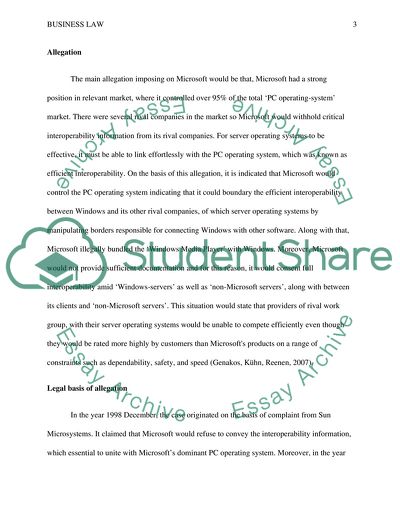Cite this document
(The Case of Microsoft and European Commission Report - 28, n.d.)
The Case of Microsoft and European Commission Report - 28. https://studentshare.org/law/1871941-business-law
The Case of Microsoft and European Commission Report - 28. https://studentshare.org/law/1871941-business-law
(The Case of Microsoft and European Commission Report - 28)
The Case of Microsoft and European Commission Report - 28. https://studentshare.org/law/1871941-business-law.
The Case of Microsoft and European Commission Report - 28. https://studentshare.org/law/1871941-business-law.
“The Case of Microsoft and European Commission Report - 28”. https://studentshare.org/law/1871941-business-law.


